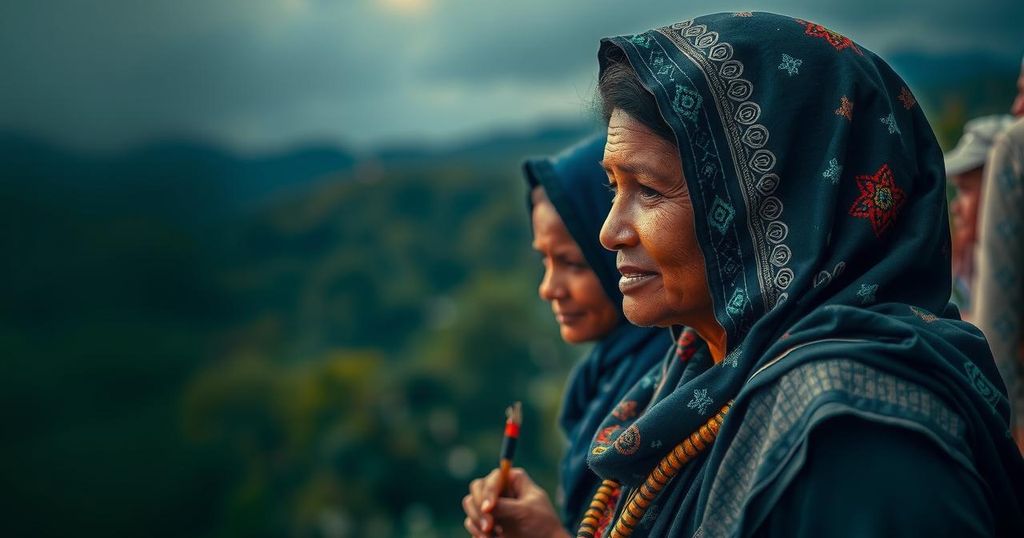At the UNCCD COP16 in Riyadh, Imaan Sulaiman-Ibrahim, Nigeria’s Minister of Women Affairs, reported that 80% of climate change victims are women and children, stressing the need for targeted interventions. She highlighted women’s critical roles in food systems and agriculture, emphasized the health risks due to traditional cooking methods, and called for international support to empower women in combating climate change.
Imaan Sulaiman-Ibrahim, Nigeria’s Minister of Women Affairs, revealed that climate change disproportionately affects women and children, comprising 80% of its victims globally. She emphasized the need for specific interventions targeting these vulnerable groups at the United Nations Convention to Combat Desertification (UNCCD) COP16 in Riyadh. The minister highlighted women’s pivotal roles in food systems, stating that they constitute 70% of food processing and 60% of smallholder farmers. She asserted that empowering women in land restoration and sustainable practices is crucial given their contributions. Furthermore, she addressed the health risks associated with traditional cooking methods, noting that women who use wood or charcoal for cooking intake harmful smoke equivalent to 40 cigarette sticks per meal, thereby posing significant health risks and reducing life expectancy.
Sulaiman-Ibrahim pointed out that women represent over 50% of Nigeria’s population and perform 70% of agricultural activities, making them vital to the green economy. She discussed the socio-economic repercussions of land degradation and desertification in Nigeria, particularly in the Northeast where climate change fuels conflict, displaces millions, and heightens risks of sexual and gender-based violence. In the Northwest, desertification threatens agriculture and water resources, while in the Niger Delta, rising sea levels and flooding threaten communities. The Southeast continues to experience significant challenges from gully erosion.
Expressing appreciation for the Nigerian government’s climate efforts, Sulaiman-Ibrahim commended President Bola Ahmed Tinubu for implementing the Climate Change Act and launching the Energy Transition Plan. She also noted the recent introduction of Nigeria’s Nationally Determined Contributions (NDC) Implementation Framework for 2023–2030, aimed at utilizing innovation and adaptation to combat climate change. The Minister highlighted the significance of the Climate Gender Policy in enhancing women’s involvement in climate action, stating, “Empowering women to participate in climate action catalyses innovative solutions and builds community resilience.”
She urged international organizations to equip women with the necessary tools to effectively address climate change, emphasizing that to combat climate change effectively, women must lead efforts toward sustainable solutions that align with the Sustainable Development Goals.
The intersection of gender and climate change is a critical area of focus, as studies indicate that the effects of climate change are felt disproportionately by women and children, particularly in developing countries. Women often bear the brunt of socio-economic impacts due to existing inequalities, with their roles in agriculture and household management placing them at the forefront of climate vulnerability. Addressing these challenges through targeted interventions can enhance women’s resilience and their ability to contribute to sustainable development.
In summary, addressing the impact of climate change on women and children is essential for fostering resilience and sustainable solutions. Their significant contributions to food systems and agriculture underscore their importance as stakeholders in climate action. As emphasized by Minister Sulaiman-Ibrahim, empowering women is vital for effective climate adaptation and innovative problem-solving, making their involvement crucial in achieving broader environmental goals.
Original Source: businessday.ng






